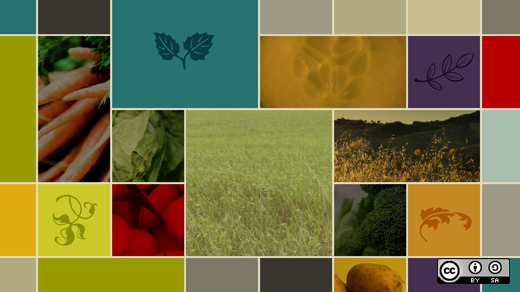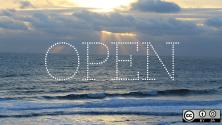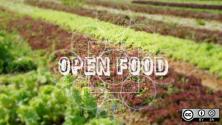The Open Source Food panel raised a diverse and complicated array of ideas about what exactly open source is and how it can be applied to food from software, hardware, social, and research perspectives. The conversation began by talking about how large amounts of information about where, who, and how our food is grown, as well as what processes touch it before it even gets to us, are often not available to the average individual.
Everyone agreed that openness and transparency are needed to improve our food supply chain. Using open source principles, the panelists commented, the costs of development for new technology diminishes and the rate of innovation increases, as products are open to anyone to tweak or use. This could allow for a "Kablooey" moment or breakthrough in how our food system might work better and be healthier for all of us, according to Stowe Boyd, Social Philosopher & Connectivist of Work Media.
Boyd pointed out that the internet has already created openness about our food and its sources through websites that attempt to examine every aspect of how our food is grown and distributed, as well as watchdog sites that try to point out abuses in the system. He would like to see more of this, as it breaks down the barriers large agri-business has constructed to protect their intellectual property rights, which have a major impact upon consumer well-being. It is about transforming the structure that has been in place for a long time to create something that is better for society as a whole.
We are really just at the beginning of what open source in food and agriculture could be, added Devin Balkind, Director of Sarapis Foundation. Making the data and technology where it applies to the means of production available to everyone could allow for innovative solutions to flourish. In using open source to figure out how to feed our world, there could be as seismic a shift in society as that caused by the Industrial Revolution. As Phil Ashlock, Open Government Program Manager for OpenPlans, said, it is about using better communication to facilitate between producers and consumers to make the process more efficient and to make them coordinate better with one another. This requires a huge exchange of open information between all the parts.
Even on a more practical level for consumers, open source is also relevant to growing smaller-scale crops, when applied to city-dwellers and those without access to large plots of land. Teaching self-sufficiency through D.I.Y. projects and getting people involved in growing their own food is something that should be available to everyone rather than locking away that technology, said Britta Riley, Co-Founder and CEO of Windowfarms.
Natalie Jeremijenko, Director of xDesign Environmental Health Clinic and Associate Professor of Visual Art, New York University, remarked that there is a real community who are looking at innovative solutions for producing highly-nutritious, valuable food in urban environments. We, as consumers, might also have to reconsider what we eat and widen our palates. The food movement needs to be driven by wonder and deliciousness. According to Jeremijenko, it’s not actually the open data itself that is very useful, but rather that the real opportunity for open systems lies in the communities of innovation that are able to develop as a result of it.
This article was originally published on Food+Tech Connect and is reposted with permission of Danielle Gould, who manages that site and who conceived of and organized this panel discussion, and Kathy Blake, the author of the post. It is part of a series of articles about the Food 2.0 day that was held during Internet Week NY and was designed to foster an open conversation about the topic, applying a methodology usually identified with technology and computers to food systems.





2 Comments